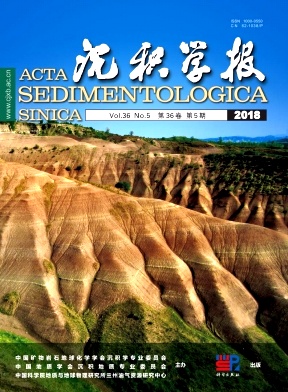Role of Microorganisms in Oil Generation(Ⅱ): Hydrogen metabolism and organic matter input from many origins
doi: 10.14027/j.issn.1000-0550.2018.071
- Received Date: 2017-02-28
- Rev Recd Date: 2018-04-20
- Publish Date: 2018-10-10
-
Key words:
- microbes /
- H2-producing bacteria /
- metabolic hydrogen /
- biogeologic action /
- crude oils and natural gases
Abstract: The discovery of H2-producing bacteria is a great advance in modern scientific research of microbiology. The hydrogen supersession (the generation and utilization of hydrogen) is the important link for microbially degradation of organic matters and generation of hydrocarbons in geological systems. During the progress of petroleum-formation, hydrogen is a middle product and also a major product. Addition of extra hydrogen is necessary all for the degradation of macromolecular compounds into low molecule ones, the elimination of oxygen-containing groups and also the transformation of alkenes into saturated hydrocarbons. If there are no hydrogen supersession, there would be no abundant petroleum formed. H2-producing bacteria contain hydrogenase with the ability to generate hydrogen. Some kinds of microbes produce H2 in the process of organic matter degradation while others utilize H2 for their living, thus for both the production and utilization of hydrogen can be always kept on a steady dynamic equilibrium. Only when H2-expending microbial existed, those of H2-producing can be grown up. H2-expending function of the bacteria can further improve the continuous reaction of hydrogen production. Those mutualistic symbioses can take place in every stage of petroleum formation. Hydrogen transformation is one of the most important characteristics to distinguish anaerobic decomposition of organic matters from aerobia ones.
The growth and breeding of microbial are influenced under temperature, nutrient and sedimentary environments. Microbial populations are replaced unceasingly from shallow to deep layers, of which the primary population died and disappeared for the change of living conditions and new bacteria might be multiplied in a great quantity. Those died microorganisms can be deposited into sedimentary layers and then transformed into hydrocarbons.
The enzyme is one protein with catalytic activity, from which all life actions of microbes can not be available. One kind of enzyme can only catalyze one certain reaction and/or complicate one kind of reactions, of which there is unique enzyme system at every stage. The enzyme might be also transformed into petroleum component after its special metabolism routing complicated. Such as chlorophyll can be transformed into F430-coenzyme of methanogen,and then converted to porphyrin compounds.
The stratigraphic geothermal can promote the thermosplitting decomposition of organic matters and result in the breaking of C-C bond much more frequently. In addition, the degradation by anaerobic activity might also be able to improve the degradation of organic matters. Both two different pathways are unanimous, each other and cooperative to speed up the splitting decomposition of organic matters. The function of hydrocarbons formation through reform and/or transformation of organic matters by microbes also include the elimination of oxygen containing groups, the production and utilization of hydrogen to generate saturated hydrocarbons etc. and thus their significance could be much more important and comprehensive for discussion on the formation of crude oils and natural gases.
| Citation: | HUI RongYao, DING AnNa. Role of Microorganisms in Oil Generation(Ⅱ): Hydrogen metabolism and organic matter input from many origins[J]. Acta Sedimentologica Sinica, 2018, 36(5): 1023-1031. doi: 10.14027/j.issn.1000-0550.2018.071 |






 DownLoad:
DownLoad: